Did you know the way you maintain your hair and the haircut you get can actually make you look younger or older than you really are? It could be something as simple as dull faded hair, or an over-grown, unkempt haircut, these may be adding years to your face. Here we list some ways you could style and cut your hair that will give you an instant face-lift.
Maintain your hair
This is no-brainer, right? Dry and dull hair appears lifeless and can add years to your appearance. Maintain your hair with a good shampoo and conditioner. You could also apply a hair serum from the mid-length to the ends of your hair, for added shine. Get regular haircuts to take care of split ends.
Fringe it

Bangs (or fringes) are the new Botox! A well-cut and styled fringe can unload years off your face. A fringe can be good for any face shape, hair type or age group, because there are so many varieties to pick from. Choose from sideswept, thick, blunt or razor-cut edges—there is something for everyone!
Messy braids
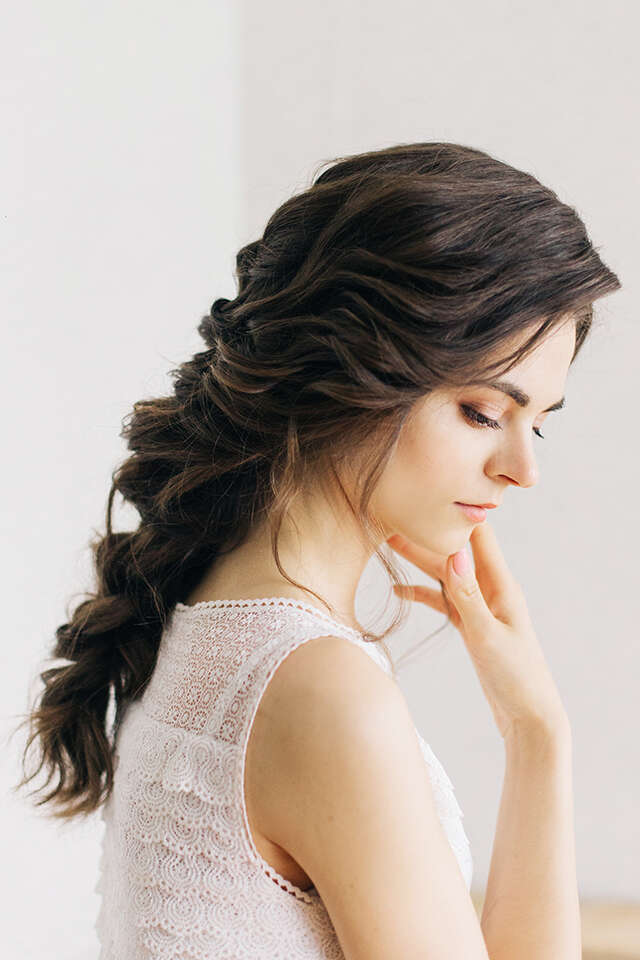
Don’t be afraid to give this style a shot since it can look good on anyone, age no bar! Sweep your hair to one side and braid it. Gently pull out strands of hair to achieve a messy look. This adds an interesting twist and softens your features.
Bob
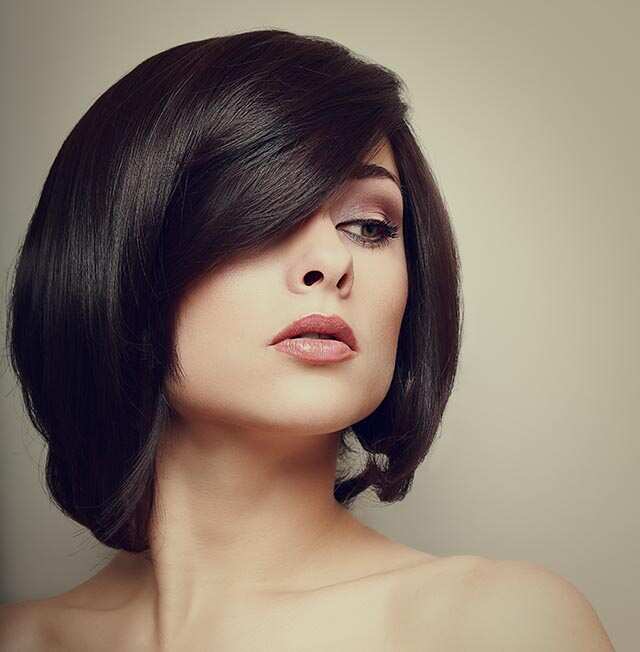
This is a versatile style as it suits every hair type, be it fine or thick. It is all about the length and the cut. Choose from chin-length, below the chin or just grazing the ears. Have your hair cut in choppy layers or have it sharply angled or graduated. Whatever you pick, it’s bound to make you look young at heart.
Highlights
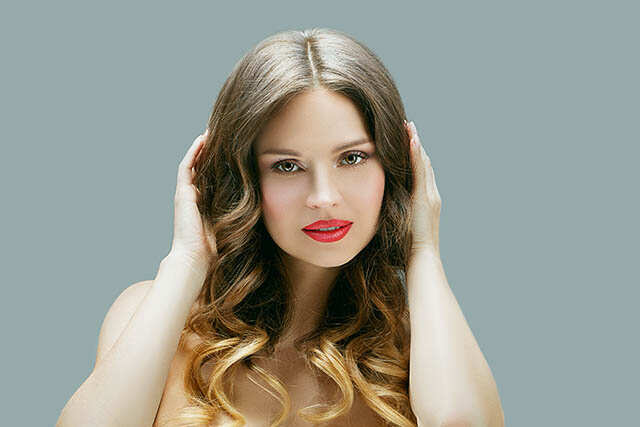
Hair contouring had its time in the spotlight and for good reason. You can actually use strategically placed hair highlights to accentuate certain features of your face. It can also be used to make your face appear more angular. By adding highlights to the hair around your face, you can achieve a younger appearance as well.
PEOPLE WHO VIEWED THIS ALSO VIEWED
How to treat dry scalp
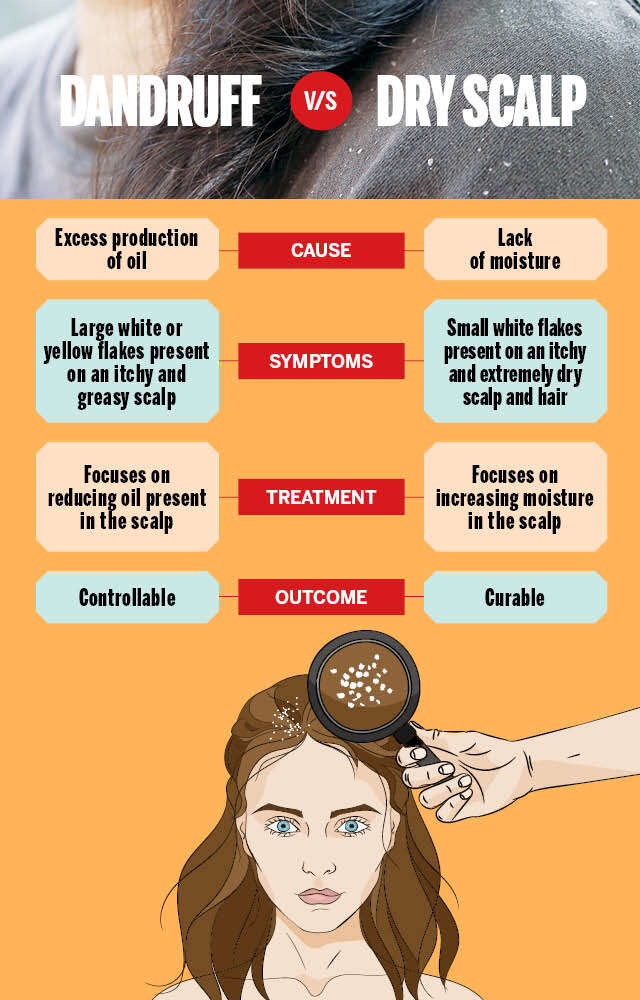
If there’s one beauty-related issue that’s normal yet utterly uncomfortable and not to mention embarrassing, it would have to be a dry, flaky and itchy scalp. It’s rather awkward finding yourself (or someone next to you) dusting white specks off your black T-shirt. If you’re bothered by an itchy scalp though, take heart in the fact that you’re not the only one in fighting this prickly battle—according to experts, almost half of India’s adult population suffers the same condition. But the good news is that there are solutions and remedies at hand.
A dry scalp is essentially the result of the skin not producing or holding enough moisture. “Dryness irritates the scalp, leading to itching and fine flaking, which can later cause dandruff. If the scalp is dry, the skin on other parts of the body could be dry too. As a result, the hair may also end up looking dry,” says Dr Rinky Kapoor, consultant dermatologist, cosmetic dermatologist and dermatosurgeon, The Esthetic Clinics & Fortis Hospitals, Mumbai.
Dry scalp is often confused for dandruff. The two however are not the same. While the symptoms of itchiness and flakiness do overlap, it is essential to know and understand the difference, in order to treat the problem.
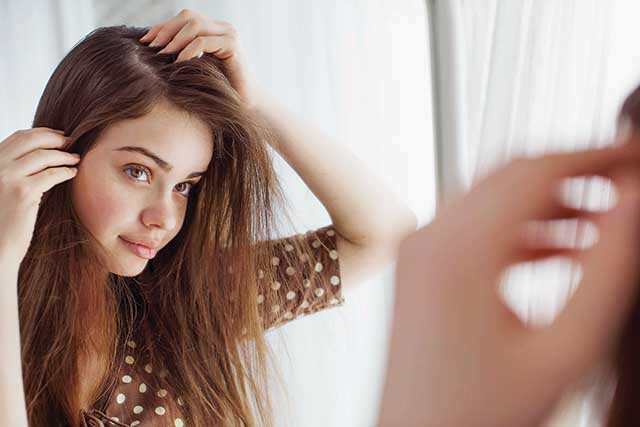
Dr Apoorva Shah, founder of RichFeel Trichology Clinic, says, “Dandruff is a broad term that covers various types of scalp-related scaling problems. Dry scalp is one of the reasons for dandruff or it can be classified as simple dandruff.”
“To determine whether you have a dry scalp or dandruff, you could apply a light moisturiser to your scalp before going to bed. If the cause is dry scalp, then the flakes should disappear once you shower the next morning,” says Dr Kapoor.
DIFFERENCE BETWEEN DANDRUFF AND DRY SCALP
Dandruff is caused by excess production of oil, whilst, dry scalp is caused by a lack of moisture in the scalp. The symptoms for dandruff include large white or yellow flakes present on an itchy and greasy scalp, whilst, the symptoms for a dry scalp include small white flakes present on an itchy and extremely dry scalp and hair. With dandruff, the treatment focuses on reducing oil present in the scalp, whereas the treatment for a dry scalp focuses on increasing moisture in the scalp. Dandruff is controllable, however, a dry scalp is curable.
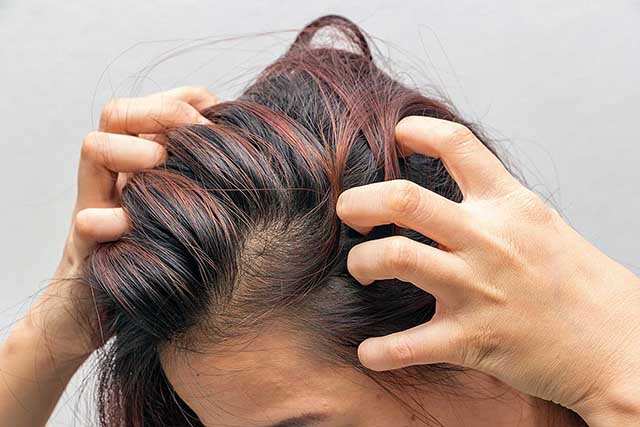
THE ROOT CAUSE
Weather
While it is known that dry and cold weather can be one of the causes of dry scalp, hot and dry conditions are equally responsible. “People who spend time in air-conditioned environments through the day are likely to develop a dry, itchy scalp due to poor humidity in the air,” says Dr Kapoor.
According to Dr Shah, water also plays a major role in causing a dry scalp, along with the weather.
Health and lifestyle
If you’re one to skip your hourly hydration, then know that low water intake could lead to a dehydrated scalp. Meeting your daily intake and still have a dry scalp? There’s probably a deficiency in your system. According to Dr Kapoor, the condition could be a result of a lack of essential fatty acids, zinc or vitamin B in the body. “At times, dietary deficiencies of vitamins A and E can also cause excessive dryness in the scalp,” adds Dr Shah.
Experts say the condition also occurs during hormonal changes, especially in women who are either going through or approaching menopause. Other skin conditions such as eczema, atopic dermatitis and psoriasis, and thyroid-related ailments that aggravate to dry skin, can also cause the scalp to flake.
Lifestyle and diet play major roles in defining healthy hair and a nourished scalp. Smoking and consumption of alcohol, stress and an unbalanced diet point towards an unhealthy scalp that’s dehydrated and dry.
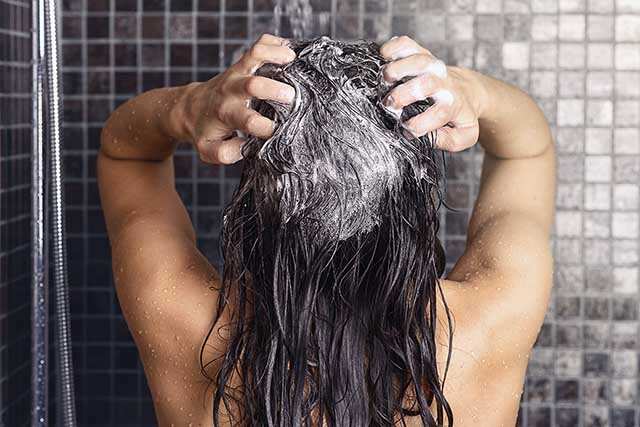
Styling
“Frequently styling your hair by straightening, ironing and colouring, and excessively washing your hair and scalp with hard water can result in a dry and flaky scalp,” says Dr Kapoor. Any contact allergy caused by styling products such as hairspray, gels, or even shampoo that’s directly applied to the scalp make it worse.
“The most common cause is the lack of conditioning. People have given up on oiling, but it is, in fact, the best hair and scalp moisturiser,” says Dr Shah.
TREATMENT
Diet
Since lifestyle and diet are key to nourishing the hair, it’s important that you watch what you eat. Ensure that your body stays hydrated through the day. Cut down on aerated drinks, alcohol and sugary foods, as they severely dehydrate the body. Dr Shah suggests drinking 12 to 14 glasses of water and the water of one tender coconut every day to replenish lost minerals.
There are certain vitamins and essential fats that contribute to a healthy scalp and hair growth. “Have foods rich in zinc such as whole grains, seafood, meats, poultry and nuts, and those rich in omega-3 fatty acids,” recommends Dr Kapoor. Abundant sources of omega-3 fatty acids include almonds, walnuts, flaxseeds and fatty fish, such as salmon, mackerel, tuna and herring. She attributes low vitamin B levels to being another cause of a dry and irritable scalp. “Have foods rich in B-complex vitamins, including meat, poultry, dairy products and eggs.”

Dr Sangeeta Velaskar, vice president and head, medical services and R&D, Kaya Limited says, “To prevent a dry scalp, you should eat foods that are high in vitamins B6 and B12.”
Increasing your vitamin A intake will also help moisturise your skin and nails. Foods such as liver, eggs and dairy products, and yellow and orange fruits and vegetables, such as carrots, squash, sweet potatoes, cantaloupes, peaches and papaya are rich in vitamin A.
Topical treatments
Along with what you eat, keep an eye out for what you apply to your scalp— so steer clear of products that cause irritation. Always read the fine print, especially the ingredients present in the product. The most obvious thing to keep in mind when you’re caring for a dry scalp is to keep it moisturised. “Use sulphate-free shampoos that are pH balanced,” says Dr Kapoor.
Discontinue the use of soap on your scalp and replace it with a hydrating shampoo and a post-wash conditioner. Dr Shah suggests looking for natural ingredients such as reetha, amla, shikakai, brahmi and jaborandi, all of which cleanse the scalp but do not strip it off its natural moisture.

“Regular massages with nourishing oils can also help with dry scalp,” says Dr Velaskar. An at-home hot oil massage with a heated towel can be carried out once a week to nourish the hair. Dr Shah however, recommends leaving the oil on the scalp for a minimum of four hours and not more than 24 hours.
Kitchen ingredients can also be used to add moisture to a dry scalp. “One tablespoon of vinegar in three cups of water can be mixed and applied on the scalp in order to balance the pH level. Similarly, lemon, apple, aloe vera and onion juice can do wonders in alleviating dryness,” says Dr Kapoor.
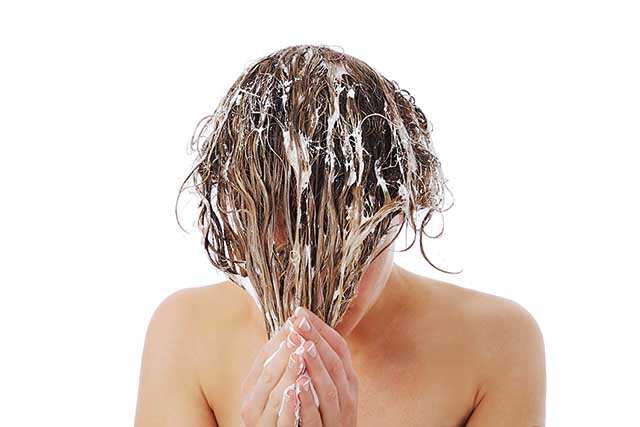
As a precautionary measure, examine everything your hair and scalp comes into contact with, including your pillow. During dry and harsh weather conditions, simply cover your head with a scarf or a bandana for added protection.
WHEN TO VISIT A DERMATOLOGIST
While dry scalp can be prevented or controlled using various methods, sometimes it’s best to visit a doctor if the condition persists. “If home treatments and shampoos don’t seem to be working, or if you have a history of autoimmune disorders such as psoriasis and eczema, it’s time to visit a dermatologist,” says Dr Kapoor. Dr Velaskar adds, “If your scalp shows signs of redness and sores, see a doctor immediately.”
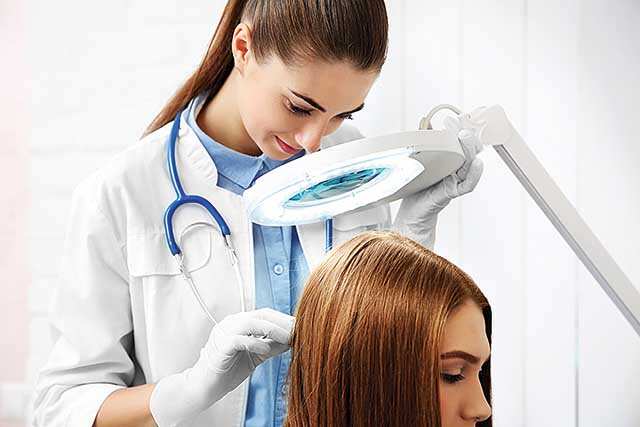
The condition can be quite damaging to the hair and scalp if not treated appropriately. While, dry scalp does not directly cause hair loss, other symptoms such as flaking and itching can make the hair brittle, causing thinning and hair loss in extreme cases.
“If not treated in time, it can lead to weakness of the scalp’s connective tissue leading to heavy shedding of the hair,” warns Dr Shah. While hair loss is a primary concern, ignoring the symptoms of a dry scalp can also lead to other hair conditions including lacklustre tresses and premature greying.
According to Dr Kapoor, if left untreated, the flaking could greatly increase, thereby causing the scalp to secrete more oil, in order to counteract the dryness. She explains, “Dermatologists determine whether it is a dry scalp, dandruff or a condition like psoriasis or eczema or some other scalp disorder and treat it accordingly.”
Although dry scalp is a concerning condition, you don’t need to hit the panic button unless and until it’s absolutely required. Precaution and cure work hand-in-hand, and with the correct diet and suited topical treatments, one can easily combat this prevalent condition without any hassle.
HOME REMEDIES
Oh honey!
We know you have been using it all along for gorgeous skin. Honey helps absorb moisture from its surroundings to your tresses.
It also contains anti-inflammatory properties that soothe itching.
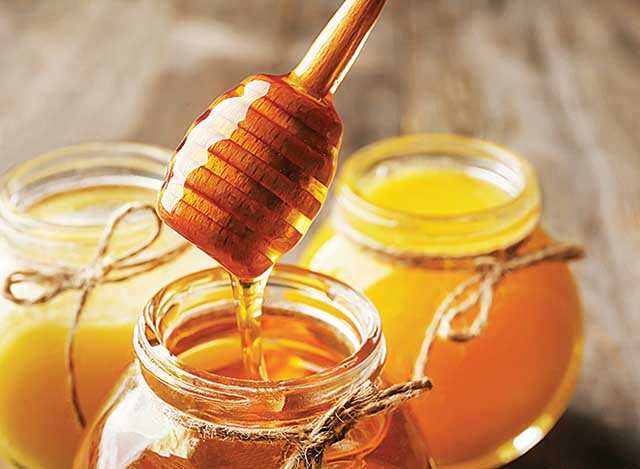
You will need
1 egg
1/2 cup yogurt
1/2 cup honey
Method
Mix the ingredients together in a bowl till it turns into a thick paste. Thoroughly massage the mixture into your scalp and keep it on for 30 minutes. Repeat the process twice a month.
Coconut goodness
A dry scalp requires a lot of deep conditioning and two of the best ingredients for the purpose are coconut milk and olive oil. The antiseptic properties of both the elements combined make for an effective moisturising mask.
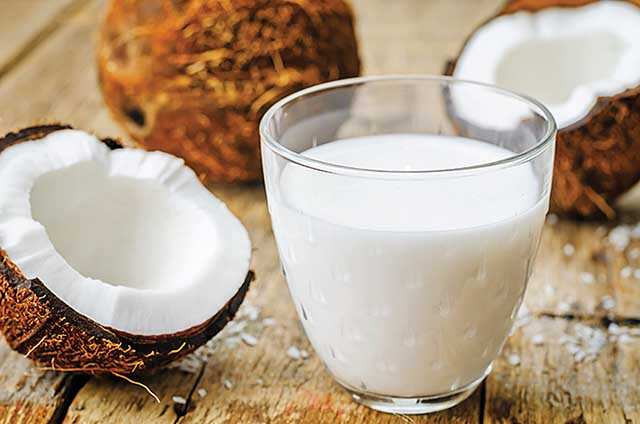
You will need
1/4 cup coconut milk
1/2 tsp olive oil
Method
Mix the coconut milk and olive oil together and apply it to your scalp. Wrap your head in a warm towel. Rinse after 20 minutes with warm water.
Aloe alert
Indulge in this au naturale ingredient and moisturise your scalp and hair from root to tip. Aloe vera and fenugreek intensively condition the scalp, retaining the moisture it requires to remain healthy.
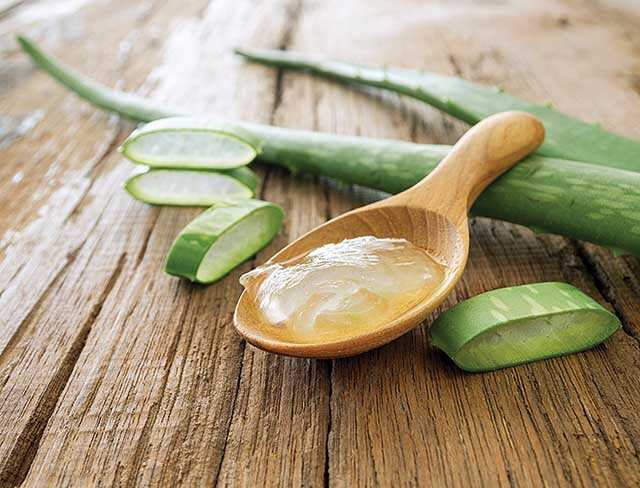
You will need
2 tsp castor oil l 2 tsp fenugreek powder
1/2 cup aloe vera
Method
Mix all the ingredients together into a smooth, fine paste. Apply the mixture to your hair and scalp, spreading it well. Cover your hair with a shower cap and let the mixture work its magic overnight. Wash it off the next morning using a mild shampoo. Apply it once a week for best results.
Banana bonanza
A delicious smoothie built just for your dehydrated scalp, bananas and avocados are known to be extremely nourishing and moisture-inducing. Rich in antioxidants, the avocados fight off bacteria, while the bananas condition the hair and scalp.
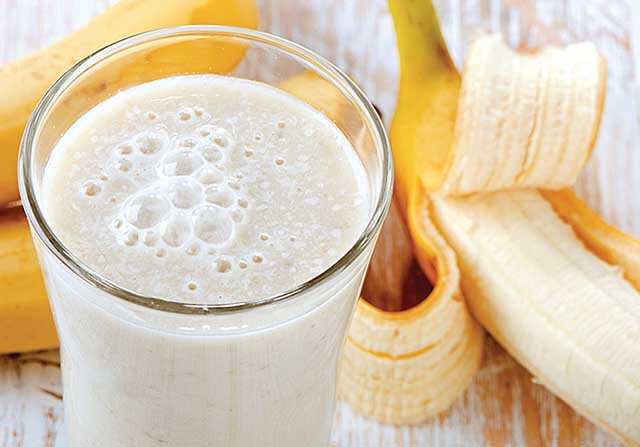
You will need
2 bananas
1 avocado
Method
Mash the two fruits together in a bowl to form a thick and consistent paste. Apply it onto the scalp, especially on areas that are more dry and itchy. Wash off the paste after 30 minutes of application. Use this mask regularly for a healthy scalp.
Berry good
A strawberry inspired hair mask that will not only leave your scalp nourished, but will also give your hair that much needed bounce it requires.
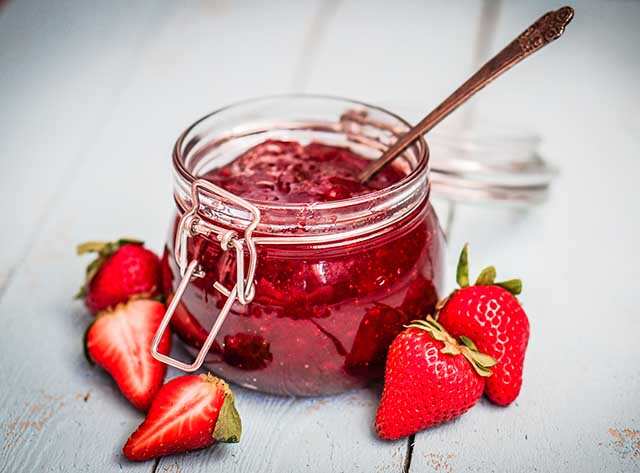
You will need
7 strawberries
2 tbsp mayonnaise
Method
Blend the two ingredients together into a thick and smooth cream and apply it to the scalp and hair when wet. Leave it on for 15-20 minutes and then wash off with shampoo.
THINGS TO DO IF YOU HAVE A DRY SCALPDrink plenty of water
Reduce the number of times you wash your hair
When styling hold the hair dryer 20 to 30 cms away from your hairUse shampoos and conditioners that aren't heavily scented
Understand your scalp before treating it with OTC anti-dandruff products
Wash the scalp thoroughly post conditioning your hair
Wash the oil after four hours of application
Massage preheated oil into the scalp
Use products that won’t increase build-up
ALL CLEAR
Myth
Dry scalp and dandruff are the same
It can be permanently treated
Frequent washing helps cure the condition
Fact
Dry scalp leads to dandruff
Treatment needs to be consistent for lasting results
Frequent washing only aggravates the condition
PEOPLE WHO VIEWED THIS ALSO VIEWED
5 rules girls with curly hair shouldn’t break
Any curly haired girl would agree that having that noodled mane, is like having a frenemy – it’s your ultimate BFF on the good days and a total pain in the neck on the bad ones. Curls are the latest and the hottest trend to hit the beauty stands this season, and since you’ve been growing them in naturally you’re in luck. While a lot of people are spending hours of their time trying to fake the perm, it’s time you took your mane seriously and gave it the tender loving care it actually deserves. We are talking about treating your hair with the utmost respect, and besides loading it with products and making sure it constantly looks on point, there are certain curly hair rules that shouldn’t be broken – and you’re unknowingly breaking it.


Rule # 1: Don’t use a fine tooth comb
Hands up, if you’ve ever lost a little comb in ‘Hair-nia’ whenever you’ve used it. Precisely. Small, fine tooth combs are not meant for curly hair. Besides the very obvious size issue (duh!), using such a comb to detangle your hair can cause the curls to break, resulting in more frizz (yayy!). Use a wide tooth comb, or even better, your fingers to detangle the hair and keep the curls intact. Oh, and never, ever brush from root to tip it – unless, Hagrid is the look you are actually going for.Rule # 2: Don’t overshampoo
Yes, you need to clean your hair. No you don’t need to go ham on it. Overshampooing your lovely mane will only strip it off its natural oils and leave you with even more frizz. When you do shampoo your hair, make sure you focus on the roots rather than the ends. Let the lather do its work on the scalp and the rest of the soapy water automatically clean the ends. Voila, clean non-frizzy hair. Top it up with some deep conditioning and your hair will be happy for days.Rule # 3: Don’t brush when wet OR dry
No we aren’t loopy and we don’t mean don’t brush your hair ever. We mean brush your hair when it’s damp rather than soaking wet or bone dry. When your strands are wet, the elasticity of the hair increases causing it to be a lot more brittle and prone to breakage. When your strands are dry your hair breaks and causes even more frizz.Rule # 4: Don’t shy away from product
Product takes your hair-relationship from frenemy to BFFs, so don’t hold back when it comes to hydrating the ends with endless products available in the market. Since curly hair is prone to becoming dry, it chugs moisture like a fish. Using more product that contains coconut oil or argan oil, or basically anything that will hydrate it, will lock the moisture into your curls, leaving them bouncy and nourished.Rule # 5: Don’t blowdry without a diffuser
Air drying is usually key for people with curly hair, but in case you need to blowdry, you need to bust out the diffuser. A diffuser adds volume to the curls, without leaving them absolutely frizzy and utterly unmanageable.
Source: Femina
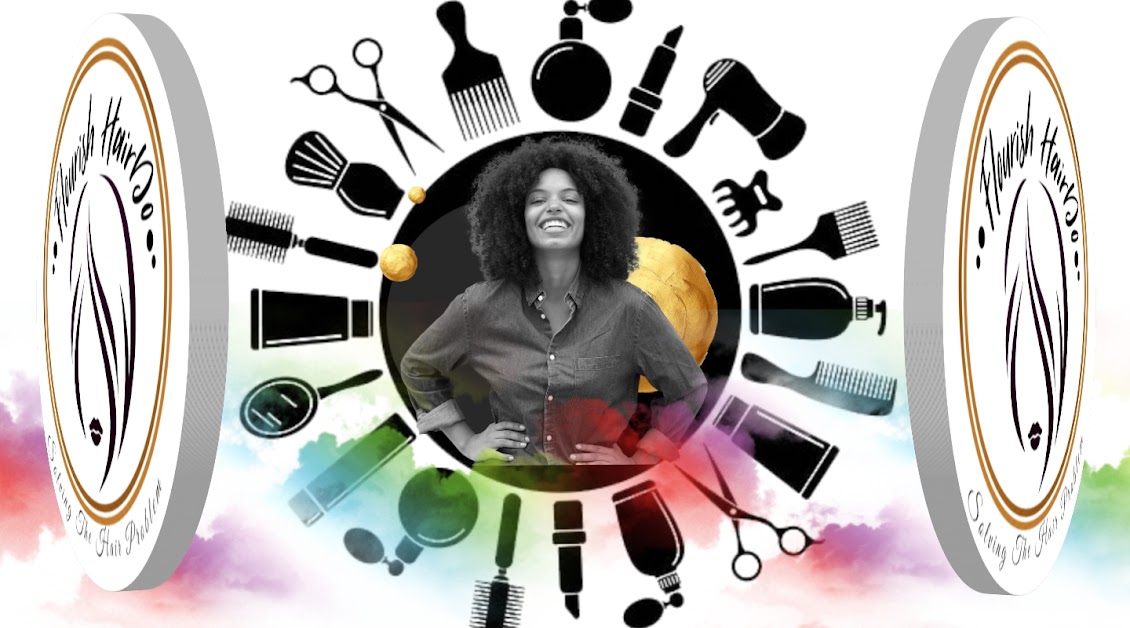


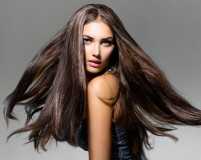
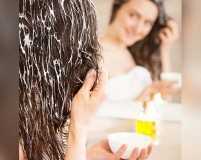

No comments:
Post a Comment
Thanks for sharing your thoughts.. We cherish it...